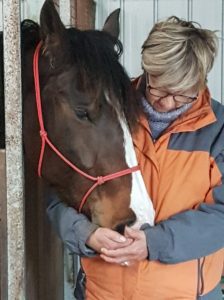Who or What Is an Equine Therapist?
A mental health professional who employs equine-assisted therapy
Psychotherapy (talk therapy) that makes use of horses as therapeutic tools is called equine-facilitated psychotherapy (EFPT), horse therapy, or equine-assisted psychotherapy (EAP). Reenacting and exploring prior events is made possible through this hands-on therapy by using tools, props, and other creative ways.

Hamer Equine Assisted Learning [ H.E.A.L.] offers a tranquil space for participants to experience the unique benefits of equine assisted therapy in Victoria, Australia. H.E.A.L. offers physically and psychologically safe experiences with horses.
The equine therapist often does not provide advice, but rather provides a secure environment in which the client can process their thoughts and feelings in relation to the session.
In this post, we’ll discuss the conditions that equine therapy can help with, as well as the steps used by an equine therapist to help their patients. There’s talk about how to get certified as an equine-assisted psychotherapist and how long it takes.
Therapies Used by Equine Psychologists
Many different health issues and mental health issues have responded well to equine-facilitated psychotherapy.
- Asperger’s Syndrome
- Problems paying attention, often known as ADHD (ADHD)
- Alcohol and drug dependency
- Problems with Trauma and PTSD
- Having issues with confidence, self-awareness, and making up one’s mind
- Disturbed Moods
- Getting used to the outside world after serving time in prison
- Depression
- Anxiety
In addition to helping people learn to trust themselves, equine therapy may also help them learn to trust other beings. People who are dealing with the effects of trauma can benefit much from this.
How Come Horses?
Being prey animals, horses are highly attuned to their surroundings. Since they are always there and aware, they may give real-time commentary on the events unfolding around them. As a result of their ability to accurately portray a patient’s emotional state, they are an invaluable member of the therapeutic team.
How Does Equine-Assisted Psychotherapy Work?
Equestrian-facilitated psychotherapy (EFPT) sessions are led by both a licensed equine therapist and a horse specialist.
It is common for clients to interact with one or more horses in a variety of ways, including grooming, feeding, walking, and playing games and doing exercises. Such aids may be provided to help individuals engage in symbolic processing of their experience. A customer may put up an obstacle course to see how their horse responds to various objects.
The equine therapist can observe and engage with the client both during and after the exercise to get insight into the client’s thinking and emotional processes and detect any recurring patterns.
Horses are individuals, and as such, may inspire comparisons to human characteristics. Clients can feel at ease developing a bond with the horse in an environment free of judgment in some situations. The horse may represent the individual or the scenario with which the person is having difficulty.
In either case, the horse can serve as a medium for reflection and restoration.
Preparing for a Career as an Equine Therapist
To engage in EFPT, one need not hold any sort of specialized certification from a third party. However, in order to provide services in the field of mental health, a therapist or counselor must have the appropriate credentials and legal authorization to do so in their state or country of residence.
There is a subset of therapists who choose to become certified by a body of experts in this field.
Professionals in the fields of mental health and education can get certified through the Certification Board Certification Board for Equine Interaction Professionals (CBEIP) by passing an examination and having their work experience reviewed.
The CBEIP operates independently from any other accreditation body. To apply to take the test, you must meet several stringent requirements. Experts on horses and riding instructors are not recognized by the CBEIP.
Equine Assisted Growth and Learning Association (EAGALA) offers a certification program for both mental health professionals and horse experts. A candidate must take an online course, attend an in-person training program, pass a test, and submit a professional portfolio before being awarded certification.
Summary
Experience-based therapies like equine-facilitated psychotherapy can be useful for treating a wide range of issues. As an example, consider autism, attention deficit hyperactivity disorder, and post-traumatic stress disorder. Clients can choose to have a more or less organized interaction with one or more horses during their session. A horse expert may assist with the practical aspects of caring for a horse, while an equine therapist can help a client deal through their emotions.





